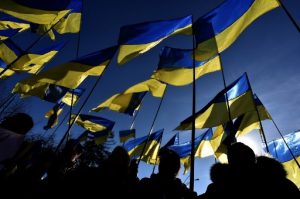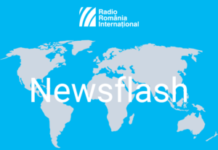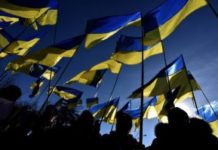While on a visit to Bucharest, the British Armed Forces Minister Leo Docherty had talks which he described as “very wide-ranging and positive” with his Romanian counterpart Angel Tîlvăr and with the defence chief of staff, and visited the British troops deployed to the Mihail Kogălniceanu base in the south-east of Romania.
The British official praised the strong relations between the two countries, Romania’s “steadfast contribution” within NATO, and the joint effort to support Ukraine.
“That is not just about Ukraine’s security, but about the Black Sea regional security. And the work that we are doing together to improve and enhance security at the Black Sea is hugely important; it’s not just important for our two countries, it’s not just important to the region, it’s actually important to the world, because a huge proportion of the world’s grain supplies and other economic activity takes place in the Black Sea,” Leo Docherty said, and warned that 2024 is a very important year for the war started by Russia.
Regional security in the context of Russia’s war of aggression was also the topic of discussions held by the Romanian defence minister in Bucharest with his Georgian counterpart, Irakli Chikovani.
“In Central and Eastern Europe, Romania is a role model in many respects, from defence of NATO’s eastern flank to consolidating democracy, the rule of law and human rights,” the Romanian president Klaus Iohannis said in his turn upon receiving the Distinguished International Leadership award from the Atlantic Council in Washington D.C.
The Romanian official emphasised that most Allied countries in the eastern flank are making progress in raising their budgets for defence and in upgrading their military infrastructure and equipment.
Our countries were able to act together, with determination, and to represent a strong deterring force against Russian expansionism, while at the same time staying true to our fundamental trans-Atlantic democratic values, Klaus Iohannis added. He also said that Romania “was in the front line through its efforts to help Ukraine,” and mentioned that over 7.5 million Ukrainians crossed the border into Romania searching for shelter, safety and free passage.
“Nearly 40 thousand Ukrainian children are now studying in Romanian classrooms. Millions of tonnes of humanitarian aid have reached Ukraine from and through Romania. Romania also helped Ukraine to preserve a vital economic lifeline, using our unique maritime connections and facilitating the transit of close to 40 million tonnes of grains—about 70% of Ukraine’s grain exports, via the Romanian Danube and Black Sea ports,” the Romanian president explained.
And all these efforts “continue for as long as necessary,” because Romania is aware of the key role it plays in helping Ukraine secure its victory and peace, its economic stability and its EU accession, the president of Romania concluded.
(Corina Cristea, Radio Romania International)










